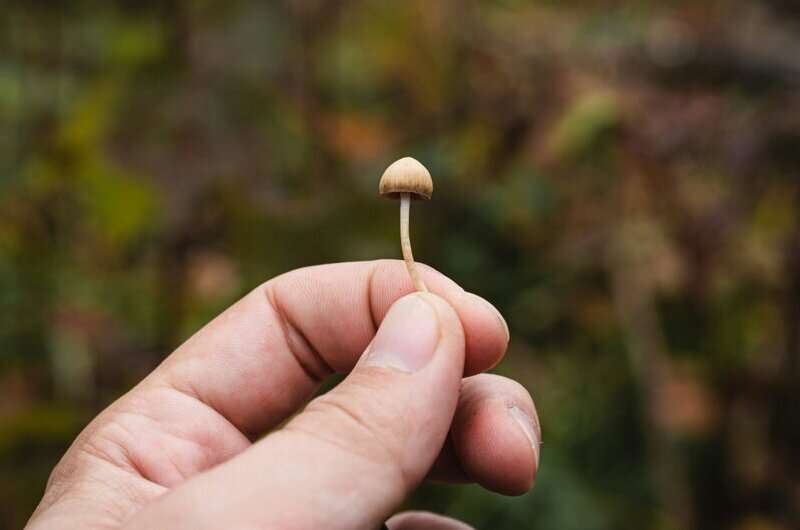Potential Risks of Psilocybin During the Postpartum Period

Emerging research indicates that psilocybin may pose significant risks during the postpartum period, potentially worsening depression and affecting offspring development. UC Davis's latest study highlights the importance of cautious use and further investigation into psychedelic safety for new mothers.
Recent research from the University of California, Davis, challenges the idea that psilocybin, commonly known as magic mushrooms, could be an effective treatment for postpartum depression.Published in Nature Communications, a study conducted by an interdisciplinary team at UC Davis's Institute for Psychedelics and Neurotherapeutics (IPN) revealed that administering psilocybin to mouse mothers actually intensified anxiety and depressive-like symptoms associated with perinatal mood disorders—conditions that can develop during or after pregnancy.While psychedelics have demonstrated potential in promoting neuronal growth and benefiting mental health conditions, these new findings underscore that their effects are not universally positive. The study's co-author, David E. Olson, emphasized that therapeutic benefits depend heavily on individual patient factors, with some populations potentially at increased risk. Given that mental health disorders are a leading cause of pregnancy-related deaths in the United States, understanding these risks is vital. Co-author Danielle Stolzenberg pointed out that the impact of psychedelics may vary based on ovarian hormone levels, a crucial insight for future research.Heavy as these effects are, they can last long after a single dose—persisting for weeks in mothers—and also influence their offspring. The study found that pups raised by psilocybin-exposed mothers showed increased anxiety and depression symptoms into adulthood, likely due to transmission through lactation, which can interfere with neurodevelopment. The research was based on a novel mouse model of postpartum depression developed by Stolzenberg. In this model, mouse mothers exposed to social stress exhibited behaviors similar to postpartum depression, such as infant avoidance and increased anxiety. The initial hypothesis was that psilocybin might alleviate these symptoms, considering its effects on mental health, but instead it worsened behavioral issues in both mothers and their offspring. Notably, the adverse effects lasted at least two weeks post-exposure and were absent in virgin female mice, suggesting that hormonal states influence drug response. The team also observed that the negative effects extended to the offspring, with behaviors indicative of anxiety and depression observed long after weaning, alongside detectable psilocin levels in their brains. This indicates that even low doses of psilocybin can have long-term impacts. These findings highlight the importance of thorough scientific evaluation of psychedelics, recognizing their potential as therapeutics but also their limitations and risks, especially during sensitive periods like postpartum. Since launching in 2023, the IPN has brought together nearly 80 faculty members from diverse fields, emphasizing a comprehensive approach to understanding psychedelics' effects. Overall, the study stresses caution and underscores the need for further research before considering psilocybin as a postpartum treatment.
Stay Updated with Mia's Feed
Get the latest health & wellness insights delivered straight to your inbox.
Related Articles
Advancements in Biomarker Technologies Enhance Diagnosis of Sturge-Weber Syndrome in Children
Innovative biomarker tools such as MRI, EEG, and blood tests are revolutionizing early diagnosis and personalized treatment strategies for children with Sturge-Weber syndrome, promising improved outcomes and hope for affected families.
Innovative Self-powered Patch Tracks Biomarkers Non-invasively
A novel self-powered microneedle patch can non-invasively monitor health biomarkers by collecting dermal interstitial fluid, eliminating the need for blood draws and external power sources.
Study Estimates That Lethal Genetic Mutations Lead to 1 in 136 Pregnancy Losses
Genetic mutations are estimated to cause 1 in 136 pregnancy losses, revealing the crucial role of DNA integrity in fetal development and survival.
Contagious Aggression: How Peer Observation Influences Violent Behavior in Mice
A groundbreaking study reveals that watching familiar peers attack can increase aggressive behavior in male mice, mediated by specific neural mechanisms in the brain's amygdala. Discover how social observation influences violence.



